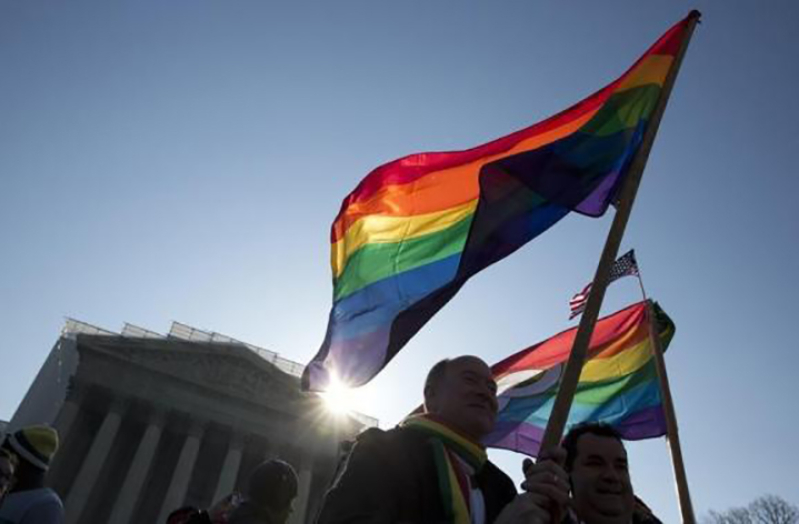
The co-author of a landmark study on same-sex marriage has stated that it should be retracted, citing that the data could be suspect.
According to Kurtis Lee of the Los Angeles Times, the study, published in December 2014 by the journal Science, claimed that household residents lobbied by gay canvassers in Los Angeles County were more likely to support same-sex marriage than if lobbied by a typical canvasser. The study was co-authored by UCLA political science doctoral candidate Michael LaCour and Donald Green of Columbia University.
"I write to request a retraction," Green wrote in a memo to Science on Tuesday. "I am deeply embarrassed by this turn of events and apologize to the editors."
Lee reported that two graduate students from UC Berkeley approached Green with a list of irregularities they found in the data. LaCour also has plans to respond to that critique soon.
"I'm gathering evidence and relevant information so I can provide a single comprehensive response," LaCour wrote via email to the Los Angeles Times. "I will do so at my earliest opportunity."
According to Sandhya Somashekhar of the Washington Post, that acknowledgment from Green has cast a shadow on a strategy typically employed by liberal activists who want to change minds on various social issues, including abortion and transgender rights.
"It undermined hopes that there was a potentially simple way to change minds on deeply held beliefs, which political scientists have long warned are difficult if not impossible to nudge," Somashekhar wrote.
The Washington Post reported that Green appeared to back up the students' claim of irregularities in the study.
"Michael LaCour's failure to produce the raw data coupled with the other concerns noted above undermines the credibility of the findings," Green wrote. "I am deeply embarrassed by this turn of events and apologize to the editors, reviewers and readers of Science."
The Los Angeles Times reported that the editor in chief of the journal Science, Dr. Marcia McNutt, issued a statement saying that the publication "takes this case extremely seriously and will strive to correct the scientific literature as quickly as possible."
"No peer review process is perfect, and in fact it is very difficult for peer reviewers to detect artful fraud," McNutt said. "Fortunately, science is a self-correcting process; researchers publish work in the scholarly literature so that it can be further scrutinized, replicated, confirmed, rebutted or corrected. This is the way science advances."
Science then published for its readers an "Editorial expression of concern" in regards to the matter.
"On 19 May 2015, author Green requested that Science retract the paper because of the unavailability of raw data and other irregularities that have emerged in the published paper," McNutt wrote. "Science is urgently working toward the appropriate resolution, while ensuring that a fair process is followed."
McNutt added that the journal wanted to alert readers "to the fact that serious questions have been raised about the validity of findings in the LaCour and Green paper."
David Fleischer, project director of the Los Angeles LGBT Center Leadership LAB, told Lee that the group was "shocked and disheartened" by the sudden developments.
"We are not in a position to fully interpret or assess the apparent irregularities in the research as we do not have access to the full body of information and, by design, have maintained an arm's-length relationship with the evaluation of the project," Fleischer said. "We support Donald Green's retraction of the Science article and are grateful that the problems with LaCour's research have been exposed."
However, Fleischer indicated that the broader conclusion derived from the study still had validity.
"We were doing this work for years before we met Mike LaCour," he said. "We'll still do it. We think we're on the right track with voter persuasion."
Fleischer added that his organization will "never for sure if we're having an impact until we have an honest, independent evaluation."






